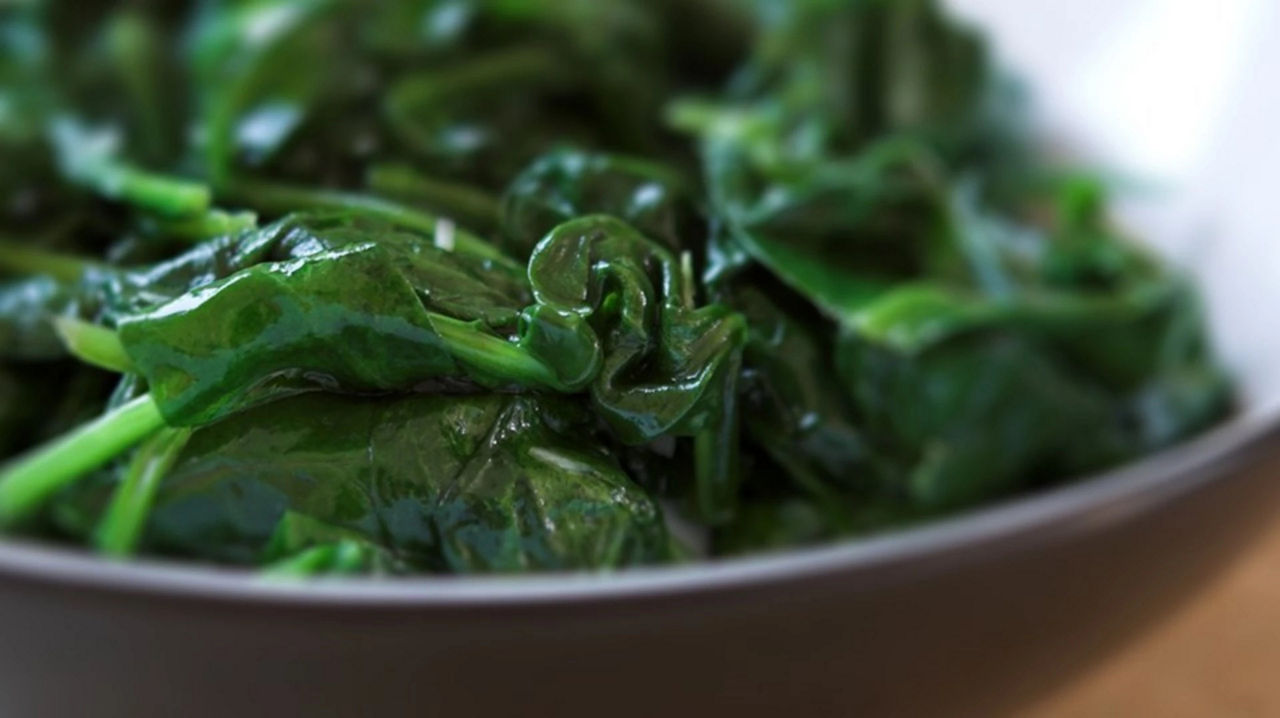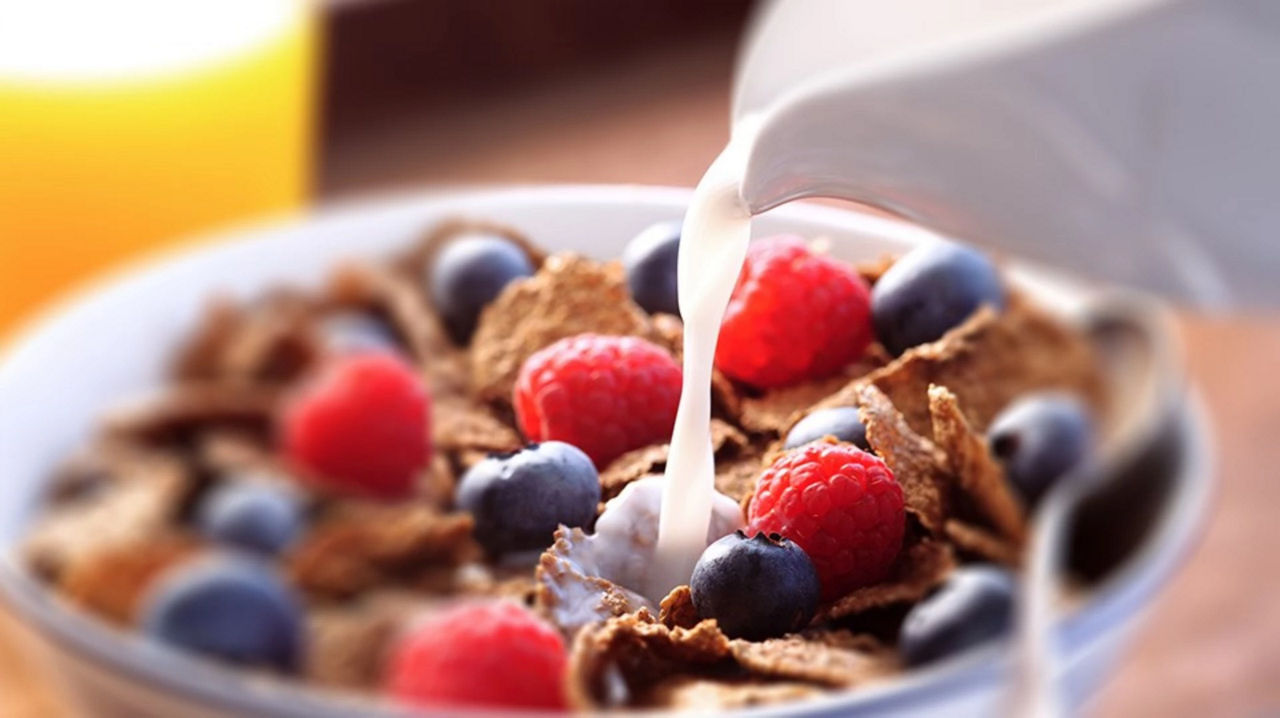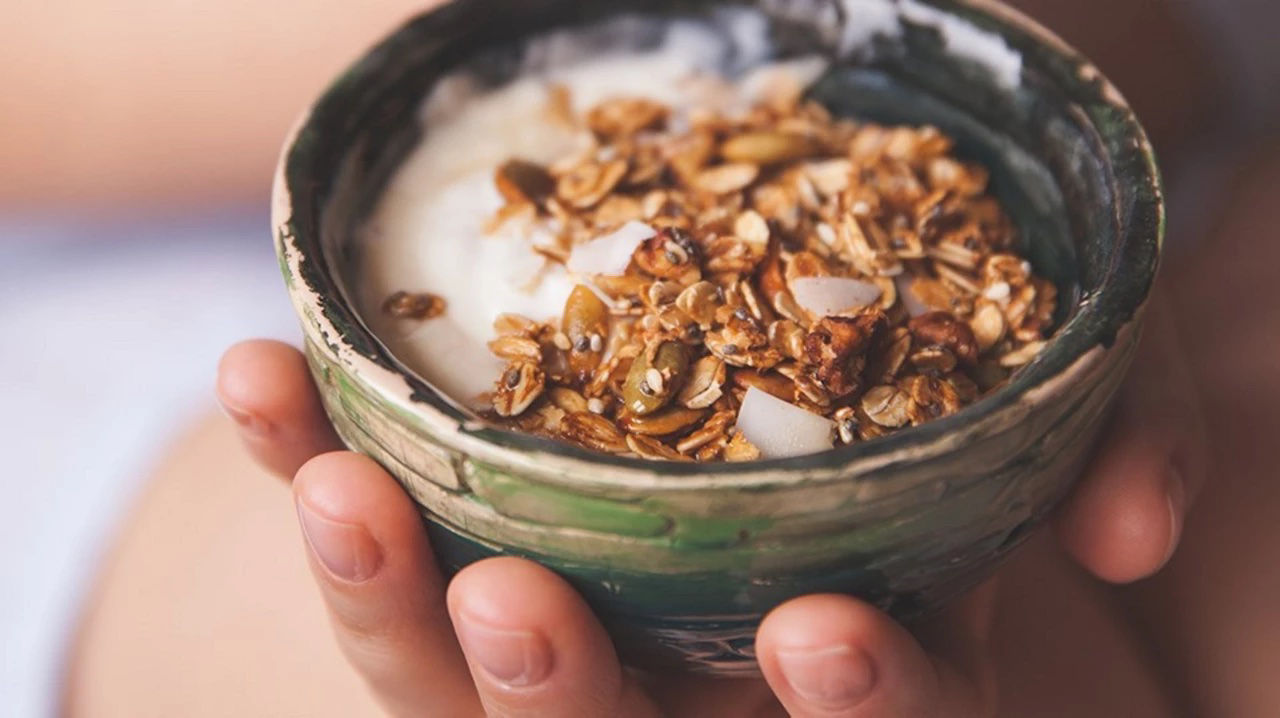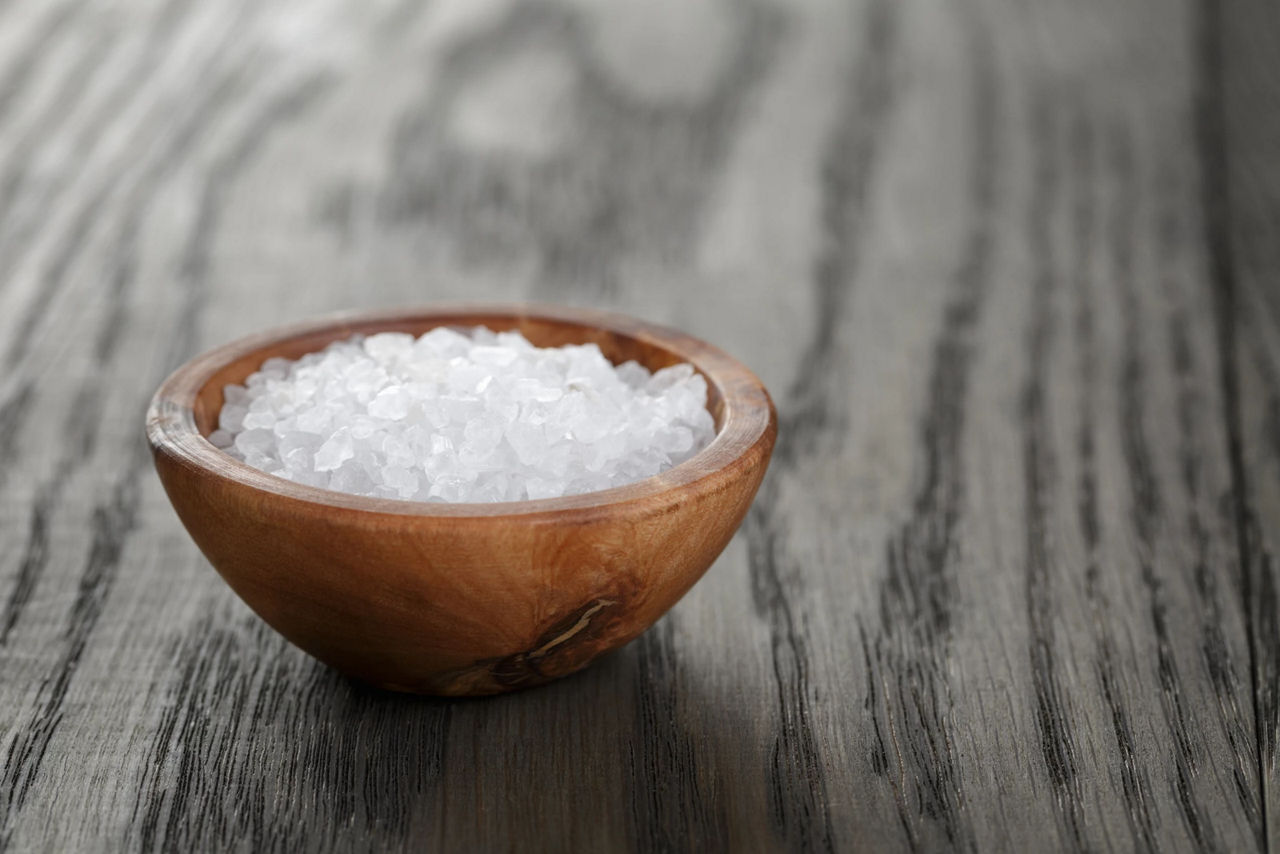A fresh start
The importance of Vitamin C
Vitamin C is needed to make collagen, one of the fibres that builds your baby’s body. So, it’s no surprise that your need increases during pregnancy. Fortunately, it’s easy to get an adequate supply from a diet that includes plenty of fruit and vegetables. Learn about the benefits of vitamin C in pregnancy, how it can help iron absorption and which foods are the best sources.
Vitamin C During Pregnancy
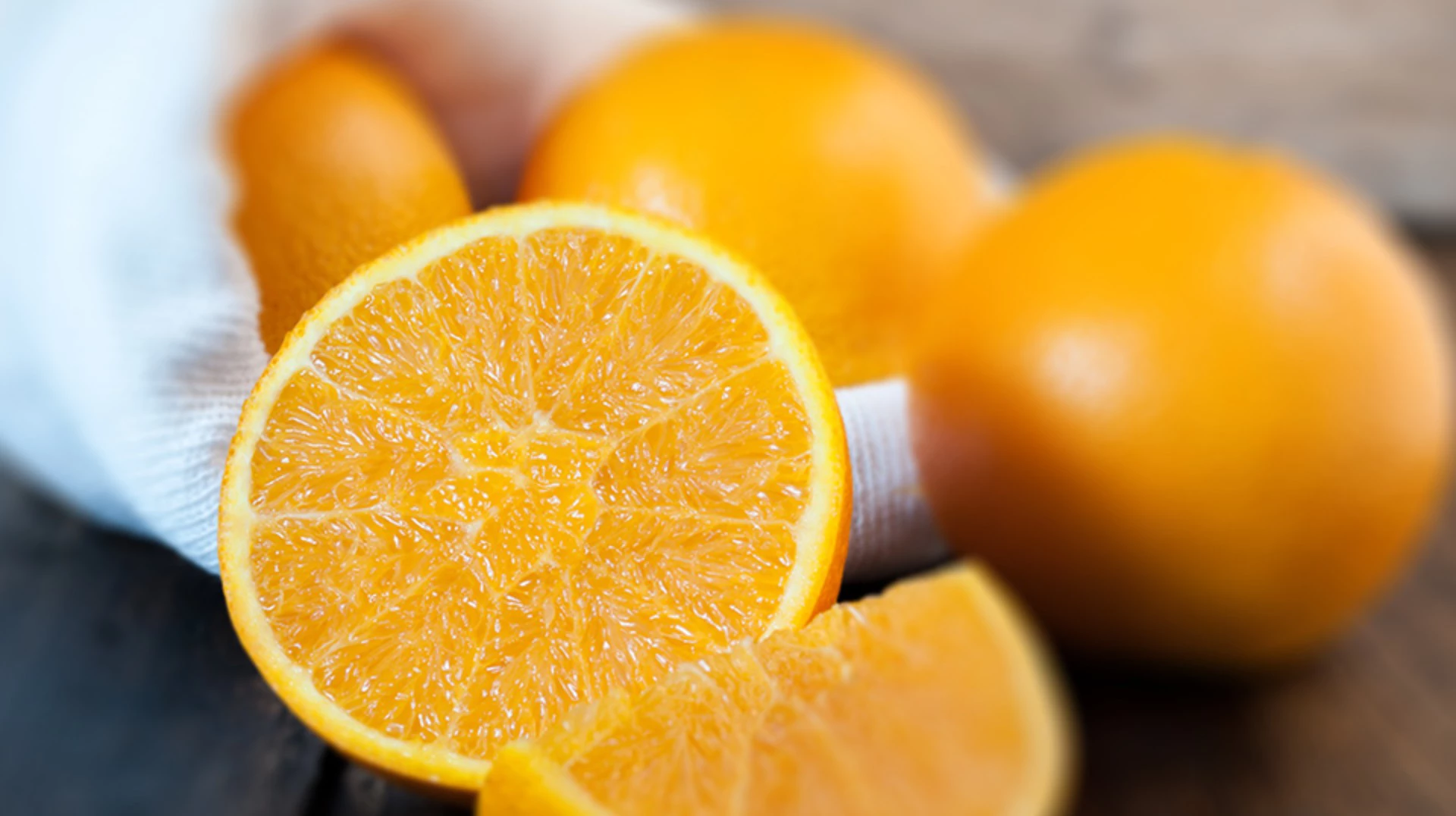
Vitamin C helps to support:
Normal development of tissues and organs
The benefits of vitamin C
Not only does it boost your immune system and reduce your risk of suffering from iron-defficiency anaemia in pregnancy, Vitamin C is key to your baby's physical development too.
It:
- aids in the production of collagen, which supports normal growth, bone strength and wound healing
- supports your baby's immune system,
- helps your baby to absorb iron and build up stores for later use.
C is for collagen
One of the main proteins needed for your baby’s normal growth throughout pregnancy is collagen. This vital part of connective tissue helps to give your baby’s body its structure, and supports their developing organs.
Vitamin C supports the immune system by keeping cells healthy and helping wounds to heal
Vitamin C can improve your iron absorption
A significant benefit of vitamin C for pregnant women is its influence on non-haem iron absorption. An adequate intake of iron is essential to support your increased blood volume and reduce the risk of iron-deficiency anaemia, a condition that can affect your own health and your baby’s development.
By aiding non haem-iron absorption from plant sources, vitamin C also plays a role in building up your baby’s iron stores, which will support their learning and growth for the first 6 months of life.
Vitamin C helps the body absorb non-haem iron, the type found in plant sources such as spinach and chickpeas
Eating good sources of vitamin C with plant sources of iron during pregnancy can increase your daily intake considerably. To get the most out of your diet, include fruit and iron sources within the same meal, whether it’s adding chopped fruit to a salad or having a whole fruit for dessert.
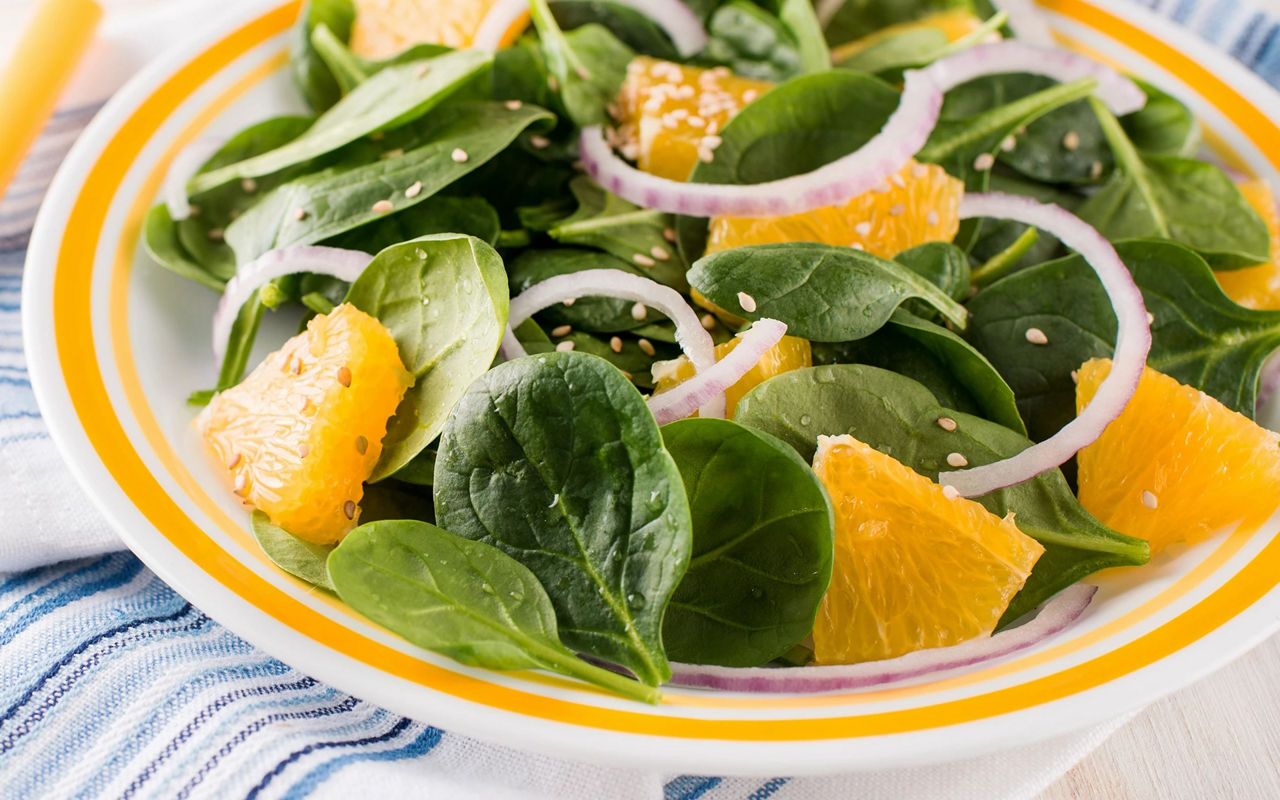 It’s not just oranges that are a great source of vitamin C, spinach and red peppers are also an excellent source.
It’s not just oranges that are a great source of vitamin C, spinach and red peppers are also an excellent source.
Getting your daily dose of vitamin C in pregnancy
The Recommended Dietary Allowance (RDA ) of vitamin C during pregnancy is 80 mg per day.
As a water-soluble vitamin, it dissolves in water and isn’t stored by the body, which means a daily intake during pregnancy is essential. Fortunately, you can get all the vitamin C you need to support you and your baby by eating a well-balanced diet that includes plenty of fruit and vegetables.
Steam and grill for a higher vitamin C intake
As with other water-soluble vitamins, the way you prepare and cook foods can affect the vitamin C content.
Boiling can destroy some of the vitamin C. To retain as much nutrient quality as possible, steam or grill your vegetables. You can also eat them raw in salads or dip raw vegetable sticks into iron-rich hummus for a nutritious snack.
Gram for gram, which of these foods contains more vitamin C?
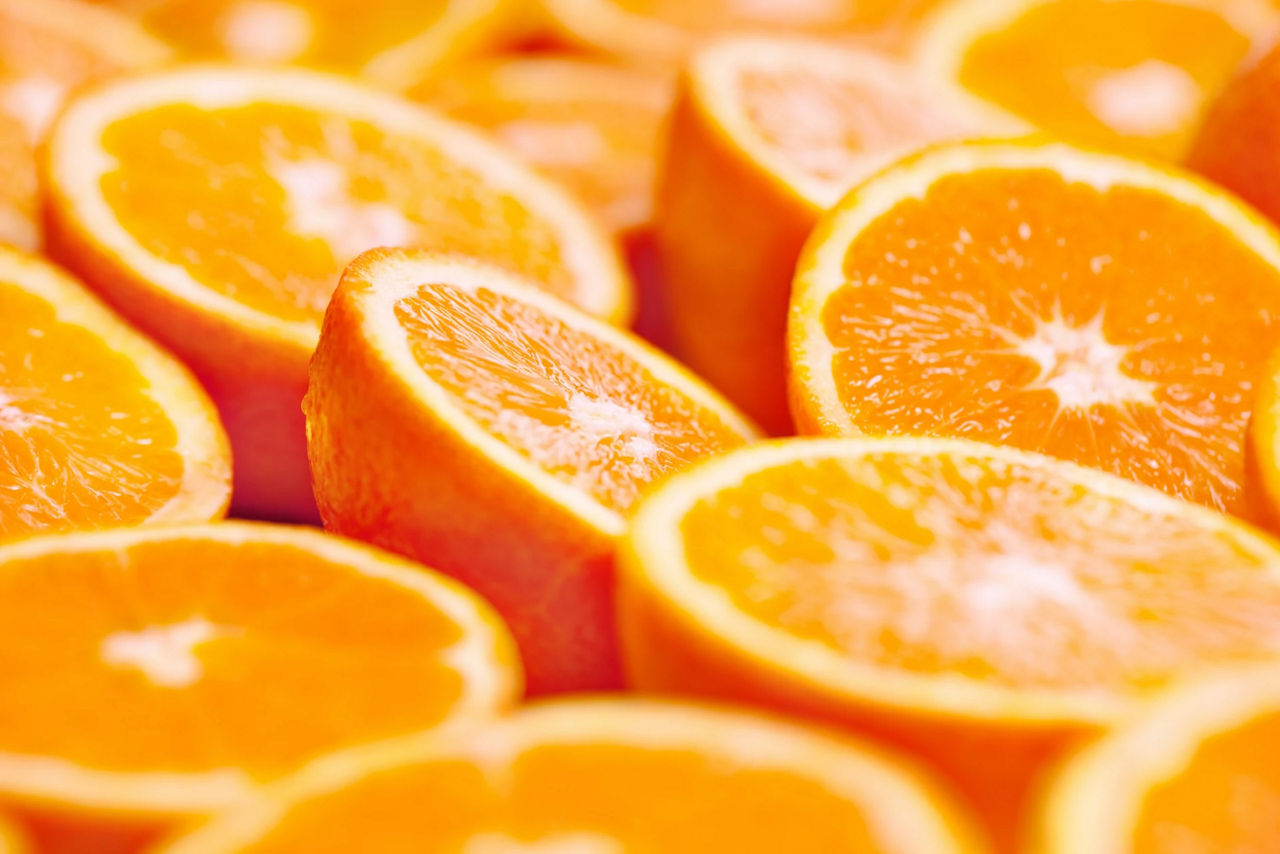
Incorrect answer
Oranges – surprisingly, they only contain 52mg of vitamin C per 100g, around half as much as peppers.
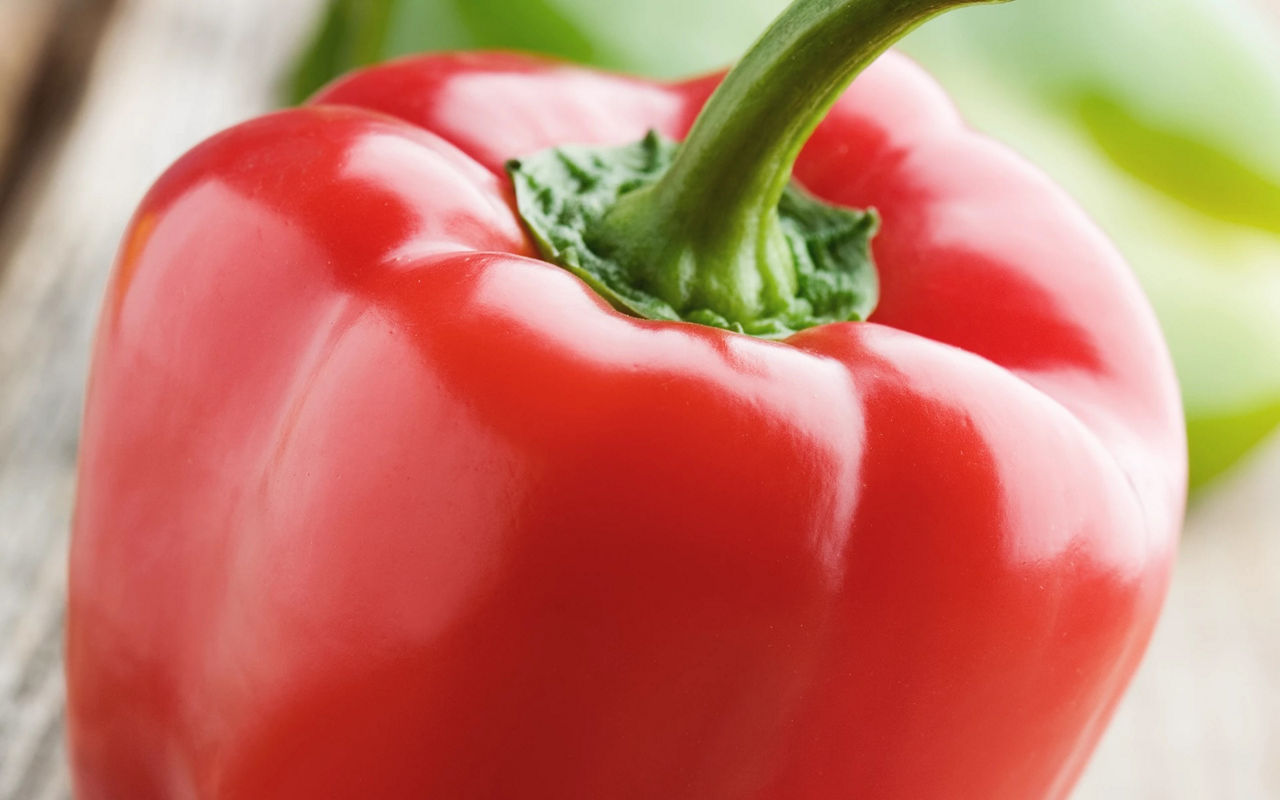
Correct answer
Peppers – amazingly, they contain over twice as much vitamin C as oranges – around 126mg per 100g.
Next steps
Add the following vitamin C-rich foods to your pregnancy shopping list:
- Red peppers
- Broccoli
- Cabbage
- Oranges
- Tomatoes
- Strawberries
related articles
Read next

Get in touch with our Careline experts
Our nutritionists and feeding advisors are always on hand to talk about feeding your baby. So if you have a question, just get in touch

